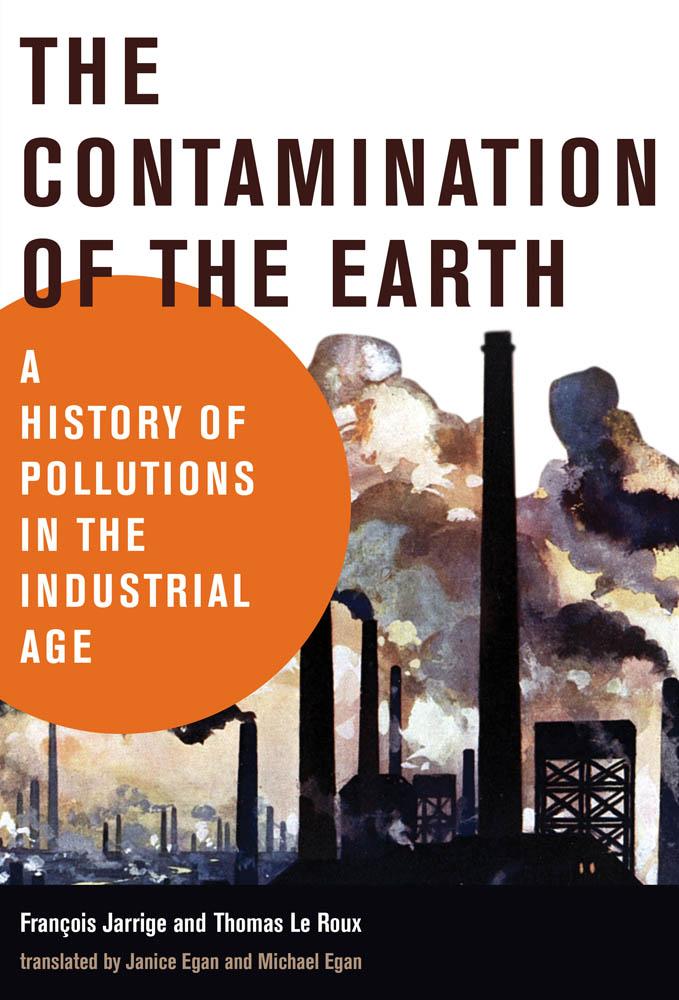A History of Pollutions in the Industrial Age

Credit: The MIT Press
Through the centuries, the march of economic progress has been accompanied by the spread of industrial pollution. As our capacities for production and our aptitude for consumption have increased, so have their byproducts–chemical contamination from fertilizers and pesticides, diesel emissions, oil spills, a vast “plastic continent” found floating in the ocean. The Contamination of the Earth offers a social and political history of industrial pollution, mapping its trajectories over three centuries, from the toxic wastes of early tanneries to the fossil fuel energy regime of the twentieth century.
The authors describe how, from 1750 onward, in contrast to the early modern period, polluted water and air came to be seen as inevitable side effects of industrialization, which was universally regarded as beneficial. By the nineteenth century, pollutants became constituent elements of modernity. The authors trace the evolution of these various pollutions, and describe the ways in which they were simultaneously denounced and permitted. The twentieth century saw new and massive scales of pollution: chemicals that resisted biodegradation, including napalm and other defoliants used as weapons of war; the ascendancy of oil; and a lifestyle defined by consumption. In the 1970s, pollution became a political issue, but efforts–local, national, and global–to regulate it often fell short. Viewing the history of pollution though a political lens, the authors also offer lessons for the future of the industrial world.
###
François Jarrige is Senior Lecturer in Contemporary History at the University of Burgundy’s Georges Chevrier Centre.
Thomas Le Roux is a tenured Researcher at the French National Centre for Scientific Research (CNRS), based at the Centre for Historical Research in the School for Advanced Studies in the Social Sciences (CRH-EHESS) in Paris.
Advance Praise:
“Scholarly rather than polemical and of interest to students of environmental and economic history.” –Kirkus Reviews
Media Contact
Heather Goss
[email protected]
Original Source
https:/




